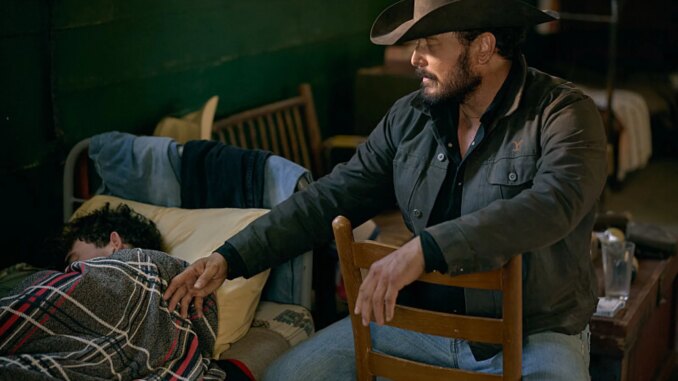
The saga surrounding Kevin Costner’s departure from “Yellowstone” is as dramatic and sprawling as the Montana landscape it depicts. While the behind-the-scenes turmoil has been widely reported, the on-screen consequences are equally significant, revealing a fascinating, and arguably unsatisfying, example of how a show navigates the exit of its central character. Rather than providing a respectful send-off, “Yellowstone” appears to be writing off John Dutton, the towering patriarch Costner embodied, in a manner that feels rushed, anticlimactic, and ultimately disrespectful to the character’s legacy.
The Diminishment of John Dutton
The erosion of John Dutton’s presence isn’t solely a matter of screen time. It’s a gradual undermining of his authority, competence, and even moral compass. The once-unquestioned leader of the Yellowstone Ranch is now portrayed as:
- Increasingly out of touch: His decisions as Governor are often impulsive and short-sighted, alienating allies and creating more problems than they solve. He seems less the shrewd strategist and more a reactive figure.
- Isolated and ineffective: He’s surrounded by advisors who seem to disregard his input, and his attempts to exert control are met with resistance, even from his own children. The once-powerful rancher now feels powerless in the face of modern political realities.
- Morally compromised: While always a character operating in shades of grey, the later seasons see John resorting to increasingly ruthless and questionable tactics, blurring the lines between protector and tyrant. This tarnishes the image of the Dutton family legacy he so fiercely defends.
This shift isn’t organic character development; it feels like a deliberate dismantling of the character to justify his inevitable disappearance. By portraying John as weaker, less capable, and morally ambiguous, the writers make his absence less jarring and potentially less impactful on the overall narrative.
Consider the alternative. A more respectful exit could have involved a heroic sacrifice, a strategic retirement placing the ranch in capable hands, or even a tragic but meaningful death in defense of his land. Instead, we seem to be heading towards a whimper rather than a bang, a fading away rather than a climactic end.
Furthermore, the emphasis on the younger Duttons, particularly Beth and Jamie, has intensified. While their storylines are compelling, their amplified presence comes at the expense of John’s narrative arc. Their internecine warfare, their personal dramas, overshadow the larger struggle for the ranch itself, further diminishing John’s importance to the overall story.
In conclusion, the writing off of Kevin Costner’s John Dutton in “Yellowstone” is a masterclass in how *not* to handle the departure of a key actor. By gradually diminishing his character, undermining his authority, and focusing on other storylines, the show appears to be preparing for his exit in a way that feels rushed, unearned, and ultimately disrespectful to the legacy of the man who defined “Yellowstone” from the very beginning. The final resolution remains to be seen, but the current trajectory suggests a less-than-glorious end for the towering patriarch of the Dutton Ranch.
“`
